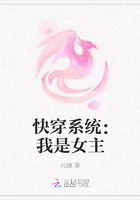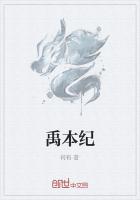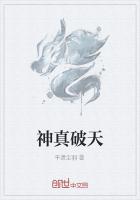Under me influence of the books I had read I planned to leave San Francisco and go abroad。 I had the idea that I would leave with some great theatrical company, and one day I went to see the manager of a travelling company that was playing a week's engagement in San Francisco and asked to dance before him。The trial took place in the morning, on the big, black, bare stage。My mother played for me。I danced in a little white tunic to some of Mendelssohn's“Songs Without Words。”When the music was finished, the manager remained silent for a while and then, turning to my mother, said:
“This sort of thing is no good for a theatre。 It's more for a church。I advise you to take your little girl home。”
Disappointed, but not convinced, I made other plans for leaving。 I called the family to a council, and in an hour's harangue made clear to them all the reasons why life in San Francisco was impossible。My mother was somewhat dazed, but ready to follow me anywhere;and we two started out the first—two tourist tickets to Chicago。My sister and two brothers remained in San Francisco with the idea that when I made the family's fortune they should follow us。
We had with us when we arrived at Chicago, on a hot June day, a small trunk, some old?fashioned jewellery of my grand?mother’s, and twenty?five dollars。I expected thatI would have an engagement at once, and that everything would be very pleasant and simple。But this was not the case。Carrying my little white Greek tunic about with me, I visited and danced for one manager after another。But their opinion was always the same as the first one’s。“It’s very lovely,”they said,“but not for the theatre。”
As the weeks went by our money was exhausted, and the pawning of my grandmother's jewellery did not bring in very much。 The inevitable happened。We could not pay our room rent and all our baggage was kept, and one day we found ourselves on the street without a penny。
I still had a little real lace collar around the neck of my dress, and all that day I walked hours and hours in the broiling sun, endeavouring to sell that lace collar。 Finally, in the late afternoon, I succeeded。(I think I sold it for ten dollars。)It was a very beautiful piece of Irish lace, and brought me enough money to pay for a room。With the money which was left I had the idea of buying a box of tomatoes, and for a week we lived on those tomatoes—without bread or salt。My poor mother became so weak that she could not sit up any longer。I used to start out early every morning endeavouring to interview managers, but fnally I decided to take any sort of work I could find and I applied to an employment bureau。
“What can you do?”said the woman at the counter。
“Anything,”I answered。
“Well, you look as if you could do nothing!”
In desperation, I applied one day to the manager ofthe Masonic Temple Roof Garden。 With a big cigar in his mouth and his hat over one eye, he watched my dance with a supercilious air, while I foated to and fro to the strains of Mendelssohn's“Spring Song。”
“Well, you're very pretty,”he said,“and graceful。 And if you would change all that and do something with some pep in it, I'd engage you。”
I thought of my poor mother fainting at home on the last of the tomatoes, and I asked him what he would consider something with pepper。
“Well,”he said,“not the sort of thing you do。 Something with skirts and frills and kicks。Now you might do the Greek thing frst, and then change to the frills and kicks, and it might be an interesting turn。”
But where was I to get the frills?I realised that asking for any loan or advance would be unprofitable and only said that I would return the next day with the frills and kicks and the pepper。 I went out It was a hot day—regular Chicago weather。I wandered along the street, tired and faint with hunger, when I saw before me one of Marshall Field's big shops。I went in and asked to see the manager, and I was shown into the office, where I found a young man sitting behind a desk。He had a kindly expression, and I explained to him that I must have a skirt with frills by the next morning, and that if he would give me credit I could easily pay him from the engagement。I do not know what inspired this young man to comply with my request, but he did so。Years afterwards I met him in the person ofthe multi?millionaire, Mr。Gordon Selfridge。I bought stuf:white stuf and red stuf for petticoats, and lace frills。And with my bundle under my arm I went home, to find my mother at the last gasp。But she bravely sat up in bed and made my costume。She worked all night and by morning had the last frill sewn on。With this costume I returned to the roof?garden manager。The orchestra was ready for the trial。
“What's your music?”he said。
I hadn't thought of this, but I said,“The Washington Post,”which was then popular。 The music started up and I did my best to give that manager a peppery dance, improvising as I went on。He was simply delighted, took the cigar out of his mouth, and said:
“That's fine!You can come on tomorrow night, and I'll have a special announcement。”
He paid me fifty dollars for the week, and was kind enough to give it to me in advance。
I had a great success in this roof?garden under an assumed name, but the whole thing disgusted me, and when, at the end of the week, he offered me a prolonged engagement, or even a tour, I refused。We were saved from starvation, but I had enough of trying to amuse the public with something which was against my ideals。And that was the first and last time I ever did so。
I think this summer was one of the most painful episodes in my life, and each time since that I have appeared in Chicago the sight of the streets has given me a sickening sensation of hunger。
But through all this terrible experience my most courageous mother never once suggested that we should go home。
One day someone gave me a card of introduction to a journalist, a woman called Amber, who was a subeditor of one of the big Chicago newspapers。 I went to see her。She was a tall, gaunt woman of about fifty?five, with red hair。I told her my ideas about dancing, and she listened to me very kindly and invited me to come with my mother to“Bohemia,”where, she said, we would meet artists and literary people。We went to the club that evening。It was on the top of a high building and consisted of some bare rooms with tables and chairs, crowded with the most extraordinary people I have ever met。In the midst of them was Amber, calling out in a voice like a man’s:
“All good Bohemians rally round!All good Bohemians rally round!”
And each time she called the Bohemians to rally round, they lifted their beer mugs and responded with cheers and songs。
In the midst of this I came on with my religious dance。 The Bohemians were nonplussed。They didn't know what to make of it。But in spite of it they thought I was a nice little girl, and invited me to come every evening and rally round with the good Bohemians。
The Bohemians were the most surprising group of people—poets, artists, and actors of every nationality。 They only seemed to have one thing in common:they wereall without a cent。And I suspected many a Bohemian, like ourselves, would have had nothing to eat at all if it had not been for the sandwiches and beer he found at the club, and which were mostly provided by the generosity of Amber。
Among the Bohemians there was a Pole called Miroski。 He was a man of about forty?five, with a great shock of red, curling hair, a red beard, and piercing blue eyes。He generally sat in a corner and smoked a pipe and looked on at the divertissements of the Bohemians with a slightly ironical smile。But he alone, of all the crowd for whom I danced in those days, understood my ideals and my work。He, too, was very poor。Yet he often invited my mother and myself out to some little restaurant to dinner, or took us by a trolley car into the country, where we had lunch in the woods。He had a passion for golden?rod。Whenever he came to see me, he brought great armfuls of it, and the red?gold fowers of the golden?rod have always been associated in my mind with the red hair and beard of Miroski……
He was a very queer man, poet and painter, and tried to earn his living by carrying on a business in Chicago。 But he could never do it, and half starved to death there。
At that time I was only a little girl, too young to understand his tragedy or his love。 I suppose that in these sophisticated times nobody could realise how extraordinarily ignorant or innocent were the Americans of those days。My idea of life then was purely lyrical and romantic。I had not then experienced or come into contactwith any of the physical reactions of love, and it was a long time before I even became aware of the insane passion with which I had inspired Miroski。This man of forty?fve or so had fallen madly, insanely in love, as only a Pole can love, with the naive, innocent little girl that I then was。My mother evidently had no premonitions and allowed us to be alone a great deal。T te??t tes together and long walks in the woods had the psychological effect。When, finally, he could no longer resist the temptation of kissing me and asked me to marry him, I believed that this would be the one great love of my life。
But the summer began to wane and we were absolutely without funds。 I decided that there was nothing to be hoped for in Chicago and that we must leave for New York。But how?One day I read in the paper that the great Augustin Daly and his company, with Ada Rehan as star, were in town。I decided that I must see this great man who had the reputation of being the most art?loving and aesthetic theatre manager of America。I stood many afternoons and evenings at the stage door of the theatre, sending in my name over and over again with the petition to see Augustin Daly。I was told that he was much too busy and that I must see his under?manager。But this I refused, saying that I must see Augustin Daly himself on a very important matter。At last, one evening, at dusk, I was admitted into the presence of the potentate。Augustin Daly was a remarkably fine?looking man, but towards strangers he knew how to assume an absolutely ferocious expression。I was frightened, but mustered up courage and delivered a long and extraordinary speech。
“I have a great idea to put before you, Mr。 Daly, and you are probably the only man in this country who can under?stand it。I have discovered the dance。I have discovered the art which has been lost for two thousand years。You are a supreme theatre artist, but there is one thing lacking in your theatre which made the old Greek theatre great, and this is the art of the dance—the tragic chorus。Without this it is a head and body without legs to carry it on。I bring you the dance。I bring you the idea that is going to revolutionise our entire epoch。Where have I discovered it?By the Pacifc Ocean, by the waving pine?forests of Sierra Nevada。I have seen the ideal figure of youthful America dancing over the top of the Rockies。The supreme poet of our country is Walt Whitman。I have discovered the dance that is worthy of the poem of Walt Whitman。I am indeed the spiritual daughter of Walt Whitman。For the children of America I will create a new dance that will express America。I bring to your theatre the vital sound that it lacks, the soul of the dancer。For you know,”I continued, trying not to heed the great manager’s impatient interruption(“That’s quite enough!That’s quite enough!”),“for you know,”I continued, raising my voice,“that the birth of the theatre was the dance, that the first actor was the dancer。He danced and sang。That was the birth of the tragedy, and until the dancer in all his spontaneous great art returns to the theatre, your theatre will not live in its true expression!”
Augustin Daly did not quite know what to make of this thin, strange child who had the audacity to harangue him in this manner。 But all he replied was:
“Well, I have a little part in a pantomime that I am putting on in New York。 You can report for rehearsals the first of October and if you suit you are engaged。What's your name?”
“My name is Isadora,”I replied。
“Isadora。 That's a pretty name,”he said。“Well, Isadora, I'll see you in New York on the first of October。”
Overcome with delight, I rushed home to my mother。
“At last,”I said,“someone appreciates me。 Mamma。I am engaged by the great Augustin Daly。We must be in New York by the first of October。”
“Yes,”said my mother,“but how are we going to get the railway tickets?”
Now that was the question。 Then I had an idea。To a friend in San Francisco I sent the following telegram:
“Triumphant engagement。 Augustin Daly。Must reach New York first October。Wire a hundred dollars for fare。”
And the miraculous happened。 The money arrived。The money arrived, and with it my sister Elizabeth and my brother Augustin, who, inspired by the telegram, had decided that our fortunes were made。Still, we all managed to take the train for New York, wild with excitement and happy expectations。At last, I thought, the world will recognise me!If I had known the weary time ahead before this would come to pass I might have lost courage。
Ivan Miroski was desperate with grief at the idea of parting from me。 But we swore eternal love, and I explained to him how easy it would be for us to marry when I had made a fortune in New York。Not that I believed in marriage, but at that time I thought it would be necessary to please my mother。I had not yet fully taken up the cudgels for free love for which I did battle later。















